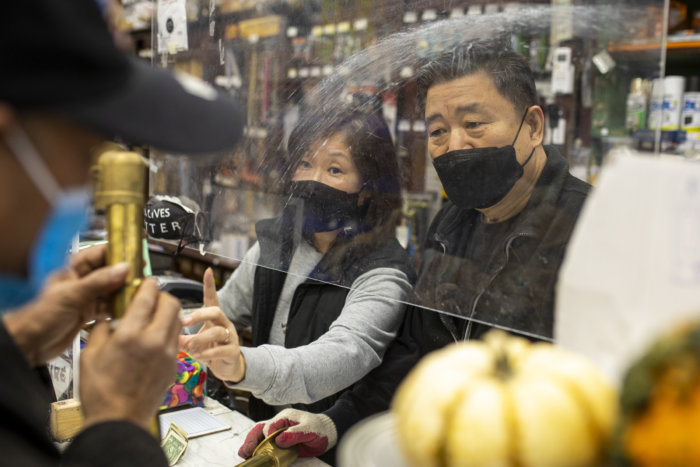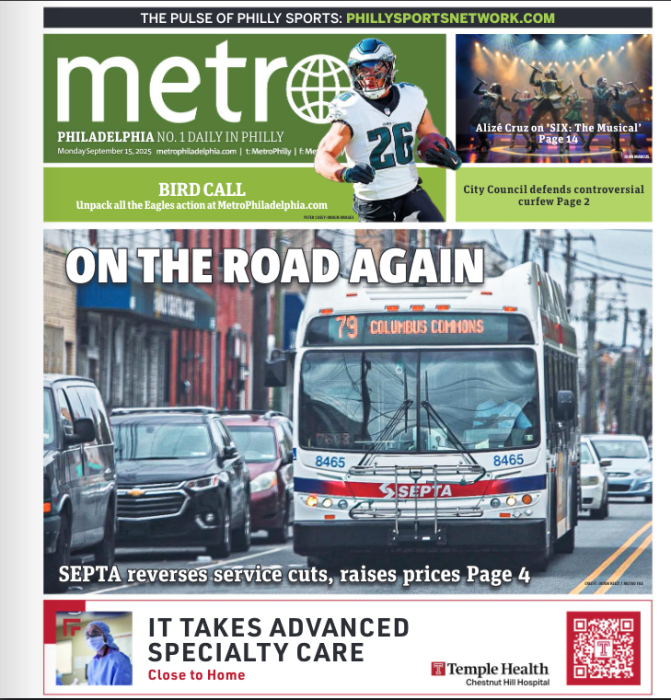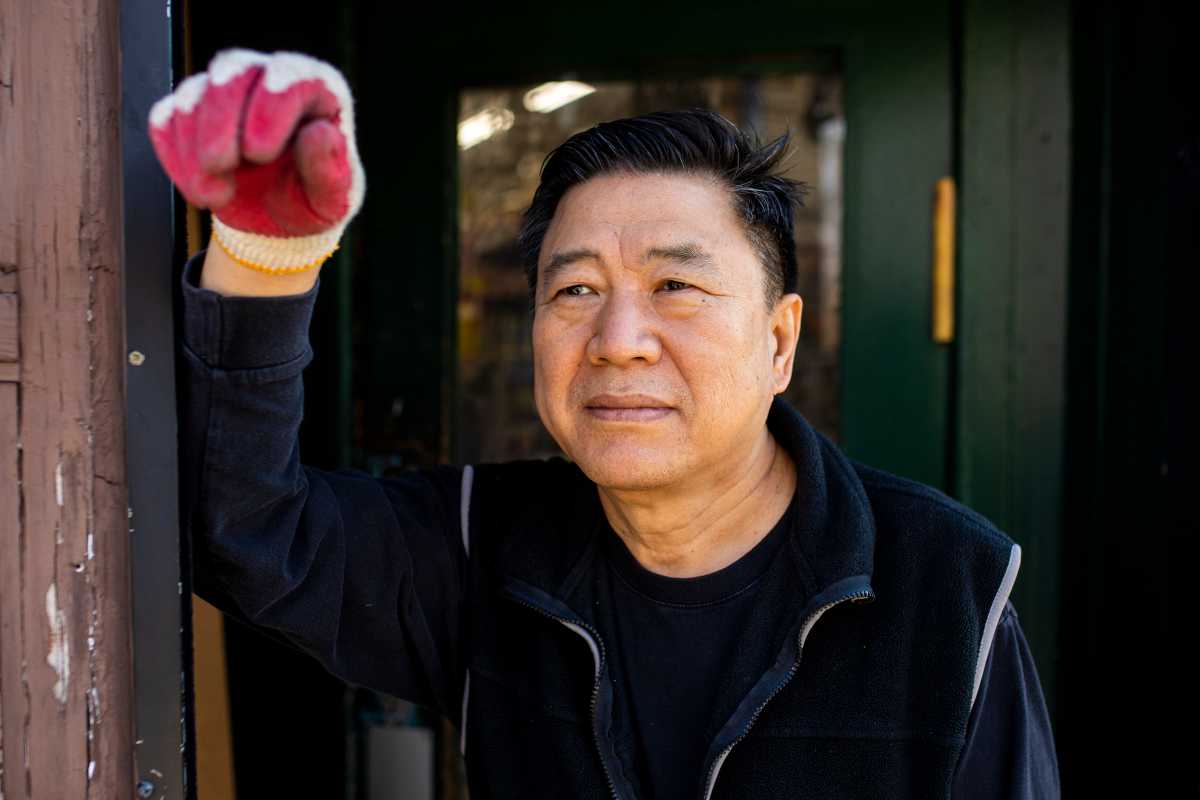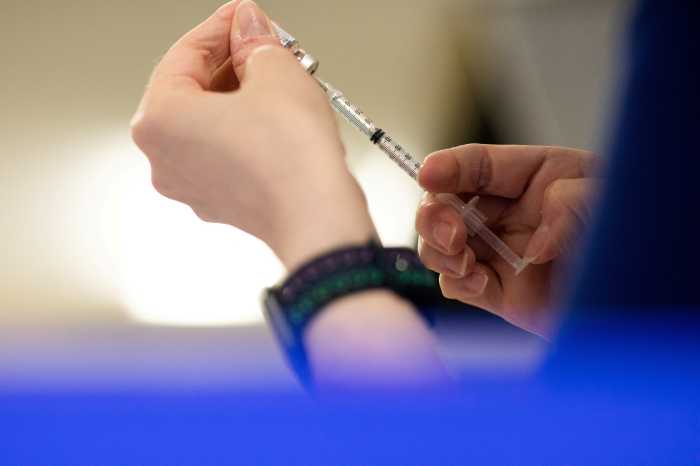Seven years ago, Justin Lee, a Korean immigrant, took over Fern Rock Hardware, an old-school shop in Olney that had been operated by a Jewish family for 86 years.
He says it’s the type of place Lowe’s and Home Depot workers tell owners of the neighborhood’s older homes to go for replacement parts that are long out of production. Lee and his wife are its only employees.
When the federal government launched the Paycheck Protection Program, the massive effort to support businesses at the height of the coronavirus pandemic, Lee began hearing about people getting financial aid.
Lee said he learned of PPP through friends in the neighborhood, on KakaoTalk — a popular Korean chat app — and from community groups. He successfully applied with the help of a local business organization and a Korean bank in Elkins Park.
Metro and the Inquirer have been speaking with Asian American small business owners, community leaders, corridors managers and others around Philadelphia for more than a year. They said language and technology barriers hampered access to PPP loans.
However, Lee’s experience highlights the resiliency of the city’s AAPI business communities in spite of these obstacles, and it points to where more resources could be devoted to ensure others are not left behind.
IT TAKES A VILLAGE
Fern Rock Hardware was far from the only AAPI-owned business that was able to obtain federal dollars through a sometimes informal network of community organizations, friends, accountants, younger relatives and financial institutions.
In most cases, the path to a PPP loan, particularly for business owners with limited English proficiency, involved a significant amount of help from multiple sources.
Their stories show the importance of community and neighborhood groups, many of which struggle with funding and staffing, and the need for more outreach from government at all levels.
The North Fifth Street Revitalization Project, the same Olney group that aided Lee, also helped T-House Inc., a nearby screen printing company.
“They really held our hands and sent any information that could apply to all of those small business owners on the corridor,” said Elisa Kim, T-House’s manager.
She said the $65,000 the business received over PPP’s two rounds “really made a difference on whether we kept the lights on or not.”
Kim grew up playing on the stoop of T-House’s building on 5th near Ashdale Street. Her parents founded the business 35 years ago, making custom shirts and other items for schools, churches and other institutions.
Though her parents still own the company, Kim took charge of navigating through the PPP process.
“It was so hard,” she said. “I’ve never filled so many forms in my life.”
The North Fifth Street Revitalization Project sent T-House targeted emails and text messages about PPP and other forms of financial assistance, Kim said.
Lee, through a Korean interpreter, said the organization provided constant emails, text messages and one-on-one support to help Fern Rock Hardware get its $5,000 loan.

The organization, like most commercial corridor groups in Philadelphia, has limited resources — its four-person team serves the stretch’s 300-plus businesses.
“We have a pretty diverse team where we were able to translate for most of our businesses, but we don’t have all of the language needs in Olney on our team,” said Stephanie Michel, the organization’s executive director.
Dan Tang, who runs a pharmacy on the corridor, occasionally volunteers his time to provide Korean interpretation or help his neighbors with paperwork.
City officials lean heavily on corridor groups, like the North Fifth Street Revitalization Project, when trying to communicate information to small businesses.
“We’re a pretty small staff for a big city with a lot of businesses, so we rely a lot on our partnerships,” said James Onofrio, a program manager at the Philadelphia Department of Commerce.
Through a local grant program called Restore and Reopen — which provided nearly $1.6 million to 186 businesses damaged by the civil unrest following the police killing of George Floyd — the city paid community organizations that offered translation assistance to small businesses.
“I think that was by far our most diverse response in terms of ethnic background and immigrant status background for our grants,” Onofrio added.
NAVIGATING BIG BANKS
Metro, the Inquirer and Resolve Philly collaborated on a data analysis looking into what banks provided loans to businesses in communities with high AAPI populations.
In Chinatown, Asian Bank processed more than $2.4 million in loans and distributed them to 68 businesses, accounting for about 18 percent of all the loans in the neighborhood and the most out of any lender.
Among the top 10 PPP lenders in Chinatown, only four were major banks. In South Philadelphia, where there is a concentration of Cambodian, Vietnamese and other AAPI-owned businesses, three of the top 10 were major financial institutions. Olney’s top lenders included only two national banks.
National banks did not provide the most loans or the largest median loan in any of the three neighborhoods that were a focus of the analysis.
Fintech firms, such as Paypal and Kabbage, appear to have played a large role in getting funds to minority communities.
A report that analyzed a nationwide sample of restaurants found that Asian American-owned establishments were about 8.5% more likely to go through Fintech for PPP than white businesses.
“Fintech was really important in getting those funds distributed to minority communities,” said University of California, Santa Cruz economics professor Robert Fairlie, who has studied PPP. “There’s no doubt about that.”
Kim thought her PPP application hit a wall when she felt ignored by a national bank T-House had been working with for decades. She ended up turning to PayPal to process the company’s loans.
Asian Bank, which is based in Chinatown and has a branch in Oxford Circle, encountered new clients who struggled with the online portals set up by larger financial institutions, said James Wang, the bank’s president and CEO.
Others, he added, were having trouble getting answers about their application.
The PPP forms were not initially available in simplified Chinese, so Asian Bank created a Chinese language summary of the program and developed a spreadsheet guide that business owners could use to get an estimated loan amount.
Wang even conducted a seminar on WeChat, a popular app in the Chinese community, to explain the benefits of PPP.
“It was much more of a hand holding experience than I think some of the other places were able and willing to provide,” he said.
For future business assistance programs, having paperwork in simplified Chinese at the onset would be better, “so we don’t have to play the translator,” Wang added.
SUPPORT SYSTEMS
Hor Chou, who owns New Happy Garden takeout restaurant and leads the Cambodian Business Community of Philadelphia, said aid programs should have a website in Khmer for Cambodian business owners.
“What would be really helpful is if information is disseminated in a timely manner,” he said through an interpreter.
The city’s commerce department in March hired Jennie Nam, who was a leader of the effort to get city support for the Southeast Asian Market at FDR Park, as its first Khmer-speaking business service manager.
Others on staff speak Spanish, French and Vietnamese, representatives from the department said. Nam, whose family has been involved in several businesses, believes using Khmer puts shopkeepers at ease.
“My parents, the first line when someone comes in, and asks — they’re from the city of Philadelphia — to speak to the owner, their first response is ‘no English’ or ‘no owner,’” Nam said. “I’m able to break that barrier right away, just walking in with a smile.”
Lee pointed to the support system he — and many other AAPI business owners — relied on and said additional funding should be directed to strengthening that network of organizations, a group he says helped him financially and mentally.
“Knowing that I could go to these local organizations and receive help that way, it kind of took a lot of strain off of me and kind of lifted the burden of going through these processes alone,” Lee said.
This story was a collaboration of the Inquirer, Metro and Resolve Philly and made possible through the Future of Work program. The story grew from the work of Resolve Philly’s Community Engagement Team. The Future of Work is produced with support from the William Penn Foundation and the Lenfest Institute for Journalism. Editorial content is created independently of the project’s donors.

Metro is one of more than 20 news organizations producing Broke in Philly, a collaborative reporting project on economic mobility. Read more at brokeinphilly.org or follow on Twitter at @BrokeInPhilly.
How PPP loans missed the mark with Philly’s Southeast Asian business owners



























